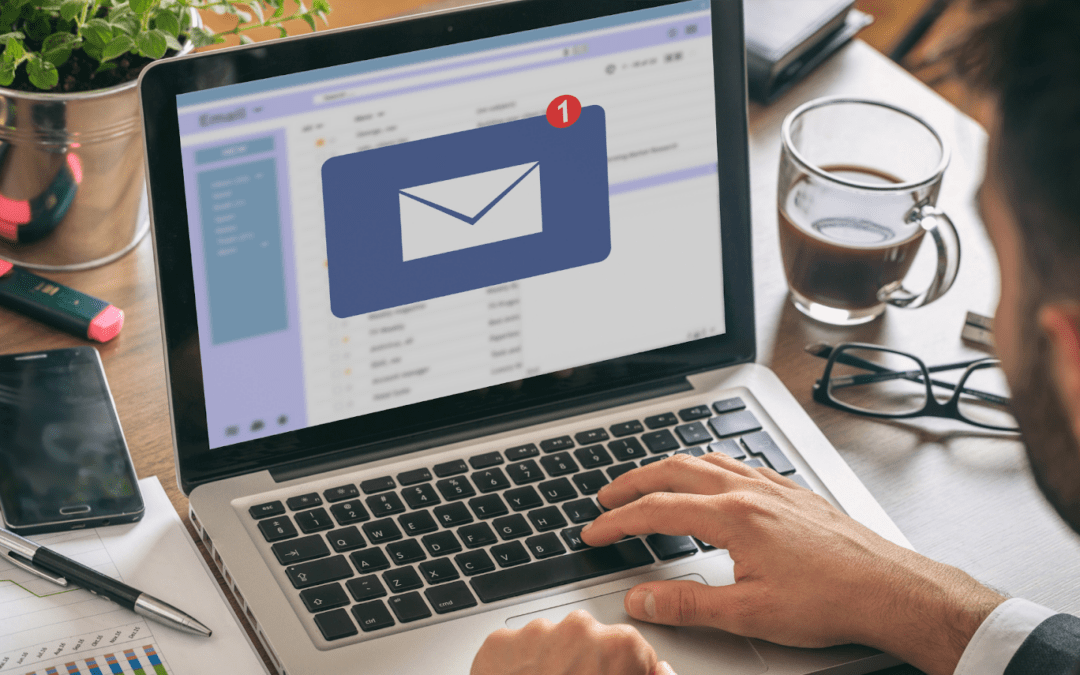In the vast sea of digital marketing strategies, email marketing stands out for its exceptional ability to directly connect with potential and existing customers, offering unparalleled conversion rates. As we navigate through 2024, the evolution of email marketing demands a blend of innovation, personalization, and strategic finesse. At Zen9 Marketing, we’ve distilled the essence of what makes email marketing campaigns not just reach inboxes, but resonate with recipients, driving engagement and conversions. Here’s how businesses can master the art of email marketing in the current landscape.
The Power of Personalization of Email Marketing
Gone are the days of one-size-fits-all email blasts. In 2024, personalization is not merely an option; it’s imperative. Utilizing advanced segmentation and AI-driven insights allows marketers to tailor their messages based on a recipient’s behavior, preferences, and past interactions. This strategy ensures that every email feels as though it was crafted for the individual, significantly enhancing the likelihood of engagement and conversion.
Crafting Compelling Content
Content is the core of any email marketing campaign and creating content that captivates and compels is crucial. This includes eye-catching subject lines that prompt opens, value-packed body content that engages, and clear, compelling calls-to-action (CTAs) that drive recipients toward conversion. Employing storytelling techniques can also elevate the impact of your emails, transforming them from mere messages into memorable narratives.
Leveraging Automation and AI
Automation tools and AI technologies are revolutionizing email marketing by enabling timely and relevant communications without the need for constant manual intervention. Automated workflows can trigger emails based on specific actions, such as welcome messages for new subscribers or follow-ups on abandoned carts. AI can further optimize email marketing efforts by predicting the best send times, optimizing email subject lines, and personalizing content recommendations at scale.
Prioritizing Mobile Optimization
With the majority of emails now being opened on mobile devices, mobile optimization is no longer optional. This means designing emails that are responsive, with readable fonts, optimized images, and easy-to-click buttons. Ensuring a seamless mobile experience can significantly improve the effectiveness of your email campaigns, as recipients are more likely to engage with content that’s accessible and visually appealing on their devices.
A/B Testing for Continuous Improvement
The key to refining email marketing strategies lies in A/B testing. By systematically testing different elements of your emails, from subject lines to imagery, and even send times, you can gather valuable data on what resonates best with your audience. This iterative process allows for continuous improvement, ensuring that each campaign is more effective than the last.
Staying Compliant with Regulations
As email marketing evolves, so do the regulations governing it. Compliance with laws like the GDPR in Europe and the CAN-SPAM Act in the U.S. is crucial to maintain trust and avoid legal pitfalls. This includes obtaining explicit consent to email contacts, providing clear unsubscribe options, and ensuring transparency about how subscriber data is used.
Measuring Success and ROI
Finally, the mastery of email marketing is incomplete without the ability to measure success and calculate ROI. This involves tracking key metrics such as open rates, click-through rates, conversion rates, and bounce rates. Utilizing analytics tools can provide deeper insights into how recipients interact with your emails, enabling data-driven decisions to enhance campaign performance.
The Zen9 Marketing Approach
At Zen9 Marketing, we believe in the transformative power of email marketing to build relationships, enhance brand loyalty, and drive business growth. By embracing personalization, leveraging technology, and adhering to best practices, businesses can unlock the full potential of their email marketing campaigns. The future of email marketing is bright, with opportunities to innovate, engage, and convert like never before. Embracing these strategies will not only elevate your email marketing efforts but also propel your business towards unprecedented success in 2024 and beyond.
Frequently Asked Questions
1. How can personalization enhance email marketing in 2024?
Personalization in email marketing is crucial because it transforms generic messages into tailored content that resonates with each recipient. By leveraging advanced segmentation and AI-driven insights, marketers can customize emails based on a recipient’s behavior, preferences, and past interactions. This level of personalization significantly boosts engagement and conversion rates, making each email feel uniquely crafted for the individual.
2. What are the key elements of compelling email content?
Creating compelling email content involves several key elements: eye-catching subject lines, engaging body content, and clear, compelling calls-to-action (CTAs). Subject lines should prompt opens, while the body content needs to provide value and keep the reader interested. Effective CTAs guide recipients toward the desired action. Storytelling techniques can also elevate your emails, turning them into memorable narratives.
3. How does automation improve email marketing efficiency?
Automation improves email marketing efficiency by enabling timely and relevant communications without constant manual effort. Tools can trigger emails based on specific actions, like welcome messages for new subscribers or follow-ups on abandoned carts. AI optimizes send times, subject lines, and content recommendations, ensuring each email is as effective as possible.
4. Why is mobile optimization essential for email marketing?
Mobile optimization is essential because most emails are now opened on mobile devices. Emails must be responsive, featuring readable fonts, optimized images, and easy-to-click buttons. A seamless mobile experience boosts engagement since recipients are more likely to interact with content that’s accessible and visually appealing on their devices.
5. What is A/B testing and how does it enhance email campaigns?
A/B testing involves comparing different elements of your emails, such as subject lines, imagery, and send times, to see what resonates best with your audience. This method allows you to gather valuable data and continuously refine your strategy, ensuring each campaign is more effective than the last.
6. How can businesses stay compliant with email marketing regulations?
Staying compliant with regulations like GDPR and the CAN-SPAM Act involves obtaining explicit consent to email contacts, providing clear unsubscribe options, and being transparent about how subscriber data is used. Compliance helps maintain trust and avoid legal issues, ensuring your email marketing efforts are both ethical and effective.
7. What metrics are crucial for measuring email marketing success?
Key metrics for measuring email marketing success include open rates, click-through rates, conversion rates, and bounce rates. These metrics provide insights into how recipients interact with your emails, enabling you to make data-driven decisions to enhance campaign performance. Tracking ROI is also essential to understand the financial impact of your efforts.
8. How does Zen9 Marketing approach email marketing differently?
Zen9 Marketing stands out by focusing on personalization, leveraging technology, and adhering to best practices. Our approach combines advanced segmentation, AI-driven insights, and creative storytelling to create email campaigns that not only reach inboxes but also resonate with recipients. This strategy builds relationships, enhances brand loyalty, and drives business growth.
9. Why is personalization not optional in 2024?
In 2024, personalization is essential because consumers expect tailored experiences. Generic, one-size-fits-all emails are less likely to engage recipients. By personalizing emails based on individual preferences and behaviors, marketers can create more meaningful connections, resulting in higher engagement and conversion rates.
10. How can email marketing drive business growth?
Email marketing drives business growth by building relationships, enhancing brand loyalty, and generating conversions. Personalized, relevant emails keep your brand top-of-mind and encourage recipients to take action, whether it’s making a purchase, signing up for a webinar, or sharing content. Over time, these interactions contribute to sustained business growth and success.



